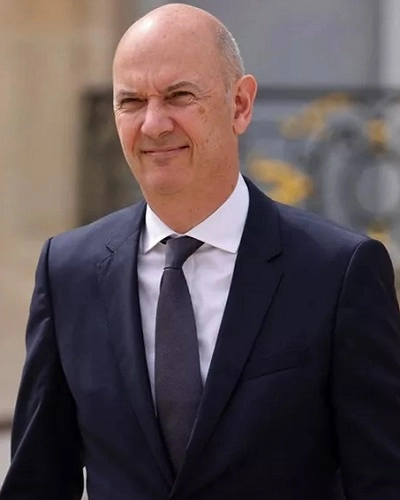France is awaiting preliminary testing processes to extract lithium from Beauvoir in Echassières (Allier) to contribute to the production of 700,000 batteries for electric vehicles.

According to the Minister Delegate for Industry, Roland Lescure, this production “will cover more than a quarter of the future needs of French mega-factories.”
The extraction involves obtaining approximately 34,000 tonnes of lithium hydroxide (a stable form of this metal) annually for around 25 years.
The project is expected to commence in 2028, though progress is already underway.
The company Imerys is executing this objective as part of the project named “Exploitation of Lithium-bearing Mica by Imerys” (EMILI).
During the preliminary stages, the viability of producing battery-grade lithium hydroxide from the extracted mineral in Beauvoir was confirmed.
These tests, which spanned several months, “paved the way” for the next step: conducting continuous tests for “several weeks” in a pilot laboratory developed by the company.
This advancement would result in the production of one tonne of the material.
It’s worth mentioning that Imerys plans to build a “pilot plant” with a production capacity of “several hundred tonnes” by 2025.
More Lithium in the EU: Other Projects Underway and Timelines
Extremadura is one of the regions in Spain where the two most significant lithium deposits are located: Cañaveral and Cáceres.
However, minerals cannot yet be extracted from either of these reserves as they are in the process of obtaining permits.
Cañaveral is situated in a sparsely populated area and has less complex land use conflicts.
On the other hand, the Cáceres area required a reassessment of its extraction plans.
It’s estimated that the Cañaveral site alone could produce 30,000 tonnes of lithium sulfate for electric vehicle battery manufacturing and extract 1.2 million tonnes of lithium.
The extraction process would require an investment of 340 million euros and could create 430 direct jobs, along with indirect employment opportunities.
Another European country with significant lithium resources is Germany.
There, the estimated total reserves of the mineral amount to around 3.6 billion tonnes.
According to the United States Geological Survey, Germany holds about 3.2% of the world’s total lithium reserves.
Furthermore, a couple of years ago, a new deposit of the mineral was discovered in a mine located beneath the River Rhine.
It’s estimated that this deposit could provide enough energy for the batteries of 400 million electric cars, making Germany one of the largest lithium deposits worldwide.
Read more: Electric buses in exchange for Latin American lithium: the agreement planned by the EU
Reducing Emissions with More Emissions?
While mining activities have environmental impacts, according to Imerys, the project will adhere to environmentally friendly measures.
To achieve this, contributions will be gathered from stakeholders involved in the process, and actions will align with the “IRMA” index, signifying an international certification for “responsible mining.”
As per the Ministry of Industry, the carbon footprint of this mine would be “significantly reduced” compared to its non-European competitors.
This is attributed, as stated by the Ministry, to the “low-carbon” electricity available in the country.
“This project, supported within the framework of the France 2030 plan, is part of the government’s industrial strategy aiming to establish the entire battery value chain in France, from raw materials to recycling,” affirmed Lescure.
This process would result in the creation of a thousand jobs for the country.







